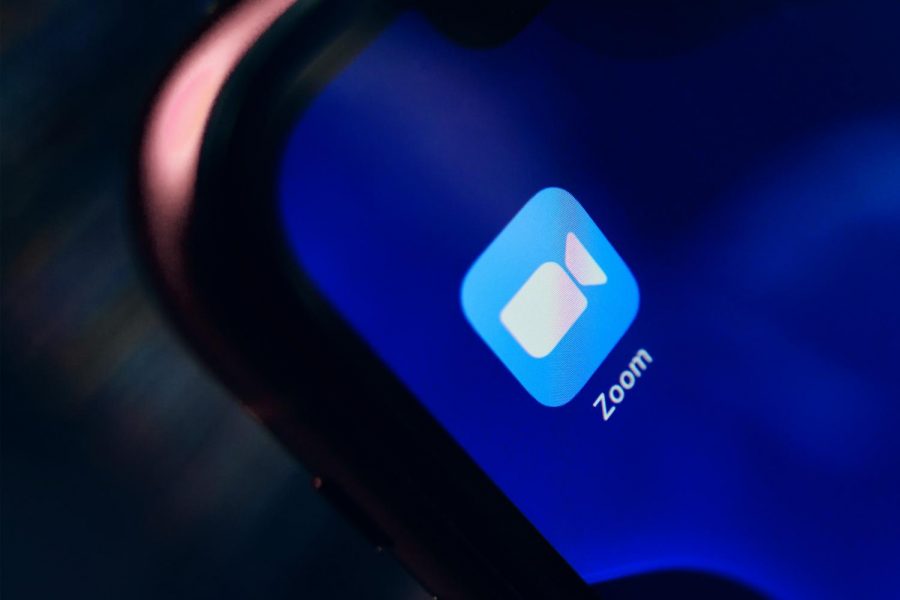Dissertation defense from a distance, Pitt doctoral candidates move online
Ph.D. candidates have begun utilizing Zoom to defend their research and present their dissertations in front of committees within their academic discipline.
April 13, 2020
While it has halted many major facets of daily life, the coronavirus pandemic is not stopping Pitt Ph.D. candidates who are determined to hold their dissertation defenses.
With the ongoing COVID-19 pandemic limiting social gatherings, online dissertation defenses have become the only safe way for Ph.D. candidates to complete their doctoral studies. Since the middle of March, Pitt students have been utilizing Zoom to defend their research in front of committees within their academic discipline.
Kevin Crowley serves as the associate dean for faculty and research in the School of Education. He said he feels confident that Ph.D. candidates are prepared to adjust to the new defense format.
“By the time doctoral students are ready to defend their dissertations, they have put in years of work,” Crowley said. “They have persevered and solved all sorts of knotty problems.”
Dissertation defenses are traditionally the culminating step in a student’s doctoral program, where they present their research and answer questions about it. Defenses traditionally occur in person, but the University moved defenses online due to social distancing protocol, Crowley said.
Crowley does not foresee students having any difficulty with the online defense format — especially those within the Ed.D. program, which is already primarily based online.
Marijke Hecht, a student who earned her Ed.D. on March 19, had her dissertation defense online in front of a Learning Sciences and Policy committee. While the format of her defense was different, Hecht said she was able to find an unexpected silver lining.
“An advantage was being able to invite people in different cities to participate,” Hecht said. “I had two friends from elementary school on the line.”
Hecht never imagined her defense could be online, she said. But she recommends that Ph.D. candidates have their defenses online, rather than wait until a time where in-person defenses are once again possible.
“Given all the unknowns for how long this will last, I think we need to do the best we can with what we have,” Hecht said. “I am so glad I didn’t have to delay my defense and will be able to finish my studies this spring.”
Bethany Swan, the Ph.D. program administrator for the School of Nursing, said students have been understanding and accommodating in this time of uncertainty.
“The upcoming defenders have been willing to go electronic,” Swan said. “But I also think that people planning to defend in the future will plan their presentation trajectory by taking social distancing into account.”
Online defenses enable students to continue on the track for graduation that they had originally planned, which is important to both the students and the University, Swan said.
As online defenses become more common, Crowley said students and faculty have noticed some advantages that cannot be replicated with in-person defenses.
“If the student decides to record the defense in Zoom, she has a record of a major milestone,” Crowley said. “It’s a good way to make sure you’ve captured all of your committee’s feedback, but it also might be something fun to look back on 20 years later.”
Likewise, Swan said online defenses are more accessible for people who might not have otherwise gotten the chance to be there, including the student’s family and friends.
“A lot of our attendees were ‘working’ but were able to listen and support from their offices,” Swan said. “Usually a physical room has only a certain capacity for people to attend, so this way the amount of attendees can be unlimited.”
Once the pandemic has passed and social gatherings are permitted again, Crowley doubts online defenses will become the norm.
“Defenses are such a major milestone in a scholarly career that I think we will always want to be together to celebrate them,” Crowley said. “Zoom has been great and we are all doing the best we can, but I think most people would rather be in-person.”
Swan agreed that online defenses should only be used in situations with extenuating circumstances, such as a global pandemic. Otherwise, there is a certain level of celebration that can only be achieved with an in-person defense, she said.
“It is such an important moment in a Ph.D. student’s career,” Swan said. “It is the accumulation of all of their hard work and the start of a research trajectory that will span across their entire lives.”
But Swan said she also thinks that positive aspects of online defenses can be embraced in the future.
“Maybe an electronic component can be added to in-person defenses so more people can support the students,” Swan said. “A Zoom link could connect to the in-person presentation.”
Crowley said he expects students will feel the same sense of accomplishment for completing their dissertation and their peers will be just as eager to congratulate them.
“I don’t think the need to move defenses online will slow any of our students down,” Crowley said. “Finishing is an exciting time for them — and for their faculty advisors.”








